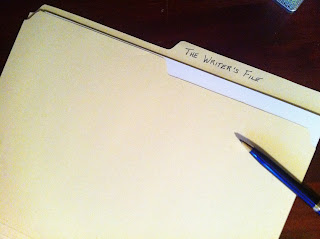“Is it true that in America there are so many sweets they
line streets and everyone can pick them up and eat them whenever they want
without ever paying?”
The question was posed to me on my last night in Zana by a
girl in her early teens. We had just finished playing our tenth round of Jenga
after eating super together. It took my friend Levi and I a couple of minutes to
explain that yes, in the States there are sweets aplenty—far more than we should eat in a
lifetime—but we do have to pay for them.
After saying our good byes a short time later, I returned to
my room to finish packing. I found myself still mulling over the girl’s
question. It wasn’t the first put to me regarding the wealth of America, and
though we were getting ready to fly home, it wasn’t the last either.
A matter of perspective
It doesn’t matter who we are, or where we come from. Each of
us is subject to our own perspective. It’s the lens through which we see the
world, and is largely shaped and formed through our own experiences.
Sometimes those perceptions end up being a little cloudy.
One of the most common misconceptions I discovered while in
Uganda was that in America there are no troubles. We all live in mansions, wear
the latest fashions, hook up with the first beautiful person we see, and drive
the most expensive cars. When many hear “American” they automatically think
“money.” And by money they mean no hardship, no harm, and no heartbreak.
In America life is perfect.
I won’t argue we have it pretty good here — far better than
many of us realize. But all I have to do is drive down my own road to see that
we also have hardship, harm, and heartbreak just like the rest of the world.
On the street corner stands an old man. His jacket
threadbare, his greasy hair slicked down by the cold drizzle. He isn’t holding
a sign, but the haunted expression in his eyes cuts me to the core because I’m as
powerless to help him as I was to offer long-term care for the people I met in
Africa.
I don’t know what misfortunes brought him to this place. Was
it a series of poor choices? Has he, like me, been unable to find permanent
work? Is his spirit completely crushed, or is there yet a tiny ember waiting
for a gentle breath to touch it and create a new flame?
Coming to a new understanding
Before I left for Uganda a number of people told me how much
they admired me for giving up time and comfort to share with complete strangers
in another country. My first day in Zana the same thing was said of our group
and I felt a twinge of guilt. At the time, I wasn’t sure why. All I knew was I
didn’t feel that I was making a difficult sacrifice by being there. For me it
was a privilege and an honor.
Now that I’m home and have had time to think, I believe I
figured out what bothered me. We view it as a noble thing to take our charity
across borders, but how often do we carry it across the street? We donate towards
food and education for starving children in third-world nations (and rightfully
so!), but how many in my own community are going to bed with an empty tummy
tonight?
While the poor of the world are pitied, so often here in the
US they are scorned. I discovered that for myself at a young age and spent my
entire young life vowing to escape that stigma. It took traveling abroad for me
to realize how backward my thinking has been.
When asked what the greatest commandment of all was, Jesus responded: “Love the Lord your God with all your heart, with all your soul, and with all of your mind. And love your neighbor as yourself.”
Putting that knowledge to work
For too long my perspective has caused me to look overlook the
needs of those nearest to me. Like my sweet-loving teen I’ve seen America as
the place were we have all the means necessary to take care of ourselves
without help from anyone else. We just have to make it happen. Those who don’t
do so bring their misfortunes upon themselves. I’ve learned for myself this
past year, that isn’t always the case.
Rather than being part of the solution, I’ve been part of the problem. And this is something I have to choose to change in myself. What does it matter if I travel the globe aiding others while ignoring those hurting in my own hometown?
One thing I learned in Uganda was the most valuable gift you could give anyone is your time. Even if I don’t have a spare penny, I do have a smile and a kind word to remind even the poorest drunk that he is a person of value. He is not forgotten. And he is never truly alone.


















